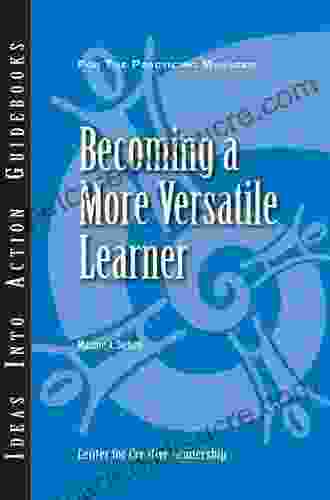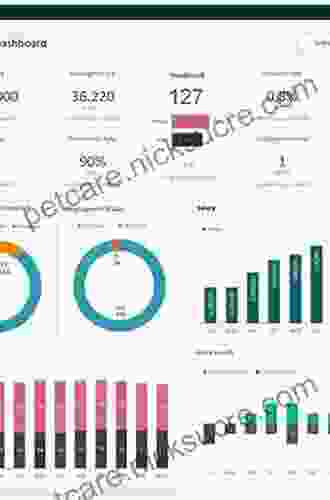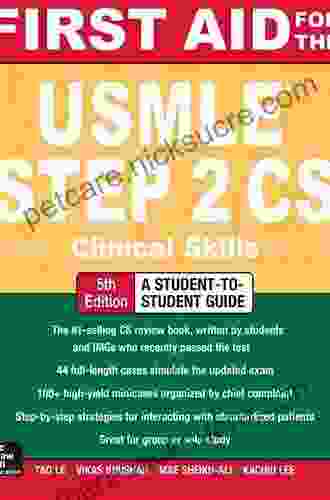42 Best Practices for Harnessing Asperger Syndrome Traits for Career Success

Individuals with Asperger Syndrome (AS) possess a unique set of cognitive and behavioral characteristics that can be harnessed to achieve remarkable professional outcomes. This comprehensive article explores 42 best practices that can empower individuals with AS to utilize their strengths and mitigate potential challenges, unlocking their full potential in the workplace.
Understanding Asperger Syndrome in the Workplace
Asperger Syndrome is a neurodevelopmental disorder characterized by social difficulties, rigid patterns of behavior, and narrow interests. However, individuals with AS often exhibit exceptional skills in areas such as problem-solving, attention to detail, and analytical thinking. By understanding these strengths and challenges, employers can create inclusive environments that foster the success of individuals with AS.
4.4 out of 5
| Language | : | English |
| File size | : | 581 KB |
| Text-to-Speech | : | Enabled |
| Screen Reader | : | Supported |
| Enhanced typesetting | : | Enabled |
| Word Wise | : | Enabled |
| Print length | : | 242 pages |
Best Practices for Leveraging AS Traits at Work
1. Embrace Your Strengths
* Recognize and celebrate your strong points, such as problem-solving, attention to detail, and analytical thinking. * Leverage these skills in tasks that require precision, thoroughness, and creative solutions.
2. Understand Your Challenges
* Be aware of potential social and communication challenges, such as difficulty with non-verbal cues and understanding social situations. * Seek support and accommodations from colleagues and mentors to navigate these areas effectively.
3. Manage Sensory Sensitivities
* Identify and manage sensory sensitivities that may impact your work performance, such as fluorescent lighting, loud noises, or strong smells. * Create a workspace that minimizes distractions and optimizes comfort.
4. Communicate Effectively
* Be clear and direct in your communication, avoiding ambiguous language and sarcasm. * Check for understanding by asking questions and summarizing key points.
5. Foster Social Connections
* Make a conscious effort to connect with colleagues on a personal level, even if it feels challenging. * Join social activities or lunch groups to build relationships and expand your network.
6. Seek Support and Accommodations
* Don't hesitate to ask for support or accommodations that will help you succeed, such as a quiet workspace or flexible work arrangements. * Collaborate with employers and HR to create an inclusive work environment.
7. Leverage Technology
* Utilize technology tools and assistive devices to compensate for social or communication challenges, such as social media monitoring software or communication apps. * Explore assistive technologies to enhance efficiency and productivity.
8. Seek Out Structured Environments
* Thriving in structured environments, consider seeking roles with clear expectations and defined responsibilities. * Establish routines and systems to maintain focus and minimize overwhelming situations.
9. Embrace Routine and Predictability
* Create routines and establish predictability in your daily schedule to reduce anxiety and improve focus. * Stick to familiar tasks and environments as much as possible to maximize productivity.
10. Focus on Your Passions
* Identify your areas of interest and seek opportunities to apply your skills in those domains. * Passion can increase motivation and drive, leading to greater success and satisfaction.
11. Develop Self-Awareness
* Continuously reflect on your strengths and areas for improvement. * Seek feedback from trusted colleagues or mentors to gain insights and identify opportunities for growth.
12. Build a Strong Support System
* Surround yourself with supportive colleagues, friends, and family members who understand your challenges and champion your success. * Join support groups or online communities for individuals with AS to connect and share experiences.
13. Be Patient and Persistent
* Recognize that it may take time and effort to adjust to the workplace and overcome challenges. * Stay persistent, seek support, and learn from your experiences to achieve your goals.
14. Eliminate Distractions
* Create a workspace that is free from distractions, noise, and other sensory triggers. * Use headphones or noise-canceling devices to minimize interruptions.
15. Establish Boundaries
* Clearly establish boundaries with colleagues to prevent overwhelming social interactions or interruptions. * Politely inform others when you need time alone or a quiet space to focus.
16. Use Visual Aids
* Utilize visual aids, such as flowcharts, diagrams, and written instructions, to enhance understanding and minimize social cues that may be missed. * Break down instructions into smaller, manageable steps to ensure clarity.
17. Request Specific Instructions
* Don't hesitate to ask for specific instructions or clarifications on tasks or projects. * Seek feedback throughout the process to ensure alignment with expectations.
18. Prioritize Tasks
* Create a prioritized to-do list to manage workload and avoid feeling overwhelmed. * Break large tasks into smaller, manageable steps to maintain focus and motivation.
19. Practice Self-Advocacy
* Clearly communicate your needs and accommodations to your employer and colleagues. * Be assertive but respectful when requesting support or adjusting your work environment.
20. Seek Mentorship
* Identify a mentor who understands Asperger Syndrome and can provide guidance, support, and career advice. * Seek mentorship from individuals who are successful in your industry or who have similar experiences.
21. Utilize Assistive Technology
* Explore assistive technologies that can enhance communication, social interaction, and productivity. * Utilize software or apps that support task management, social media monitoring, or sensory regulation.
22. Engage in Professional Development
* Continuously seek opportunities for professional development to enhance your skills and knowledge. * Attend workshops, webinars, or conferences to gain new insights and networking opportunities.
23. Foster Inclusivity
* Promote inclusivity in your workplace by educating colleagues about Asperger Syndrome and its impact on work relationships. * Create a culture where individuals with AS feel valued, respected, and supported.
24. Explore Remote Work Options
* Consider remote work arrangements to minimize sensory distractions and enhance focus. * Working remotely can provide flexibility and greater control over your work environment.
25. Advocate for Yourself
* Stand up for yourself and your rights as an employee with Asperger Syndrome. * Know your rights under the Americans with Disabilities Act (ADA) and other relevant laws.
26. Seek Reasonable Accommodations
* Request reasonable accommodations, such as flexible work hours, sensory-friendly adjustments, or assistive technology, to support your success. * Collaborate with your employer to find accommodations that meet your individual needs.
27. Take Breaks
* Schedule regular breaks throughout the day to recharge and prevent sensory overload or burnout. * Use break time to engage in calming activities, such as walking, listening to music, or spending time in nature.
28. Utilize Social Scripts
* Practice social scripts or prepare responses for common social situations to minimize anxiety and improve communication. * Rehearse interactions with colleagues and supervisors to gain confidence and reduce stress.
29. Cultivate a Positive Mindset
* Focus on your strengths and achievements, rather than your challenges. * Practice gratitude and recognize your contributions to the workplace.
30. Seek Professional Support
* If needed, consider seeking professional support from a therapist or counselor who specializes in Asperger Syndrome. * Therapy can provide emotional support, coping mechanisms, and strategies for navigating social and workplace challenges.
31. Be Open to Feedback
* Be receptive to constructive feedback from colleagues and supervisors. * View feedback as an opportunity for growth and improvement, rather than a criticism.
32. Focus on Long-Term Goals
* Set long-term career goals and create a plan to achieve them. * Break down goals into smaller, manageable milestones to stay motivated and track progress.
33. Utilize Your Unique Perspective
* Embrace your unique perspectives and problem-solving abilities to contribute original ideas and innovative solutions. * Share your insights and experiences to enhance workplace diversity and creativity.
34. Seek Opportunities for Collaboration
* Actively seek opportunities to collaborate with colleagues on projects and tasks. * Collaboration can foster professional relationships, build trust, and enhance your social skills.
35. Practice Active Listening
* Pay attention to what others are saying, both verbally and non-verbally. * Ask clarifying questions and summarize key points to demonstrate understanding and engagement.
36. Respect Boundaries
* Be mindful of personal boundaries and respect the space of others. * Avoid invading personal space or engaging in unwanted physical contact.
37. Manage Stress
* Develop effective stress management strategies, such as exercise, meditation, or spending time in nature. * Identify triggers and create coping mechanisms to minimize stress levels and maintain productivity.
38. Celebrate Successes
* Recognize and celebrate your accomplishments, both big and small. * Share your successes with your team to build confidence and foster a sense of belonging.
39. Focus on Independence
* Strive to develop independence and self-sufficiency in your work. * Take ownership of your responsibilities and seek opportunities to learn and grow.
40. Be Flexible and Adaptable
* Embrace change and be willing to adapt to different work environments and challenges. * Seek opportunities to develop new skills and expand your knowledge base.
41. Embrace Technology
* Utilize technology to enhance your productivity and communication skills. * Explore apps and software designed for individuals with Asperger Syndrome to facilitate social interactions and improve organizational skills.
42. Seek Continuous Improvement
* Continuously reflect on your performance and seek opportunities for improvement. * Set goals for personal and professional growth, and evaluate your progress regularly.
Individuals with Asperger Syndrome possess a unique set of traits that can be leveraged for remarkable career success. By
4.4 out of 5
| Language | : | English |
| File size | : | 581 KB |
| Text-to-Speech | : | Enabled |
| Screen Reader | : | Supported |
| Enhanced typesetting | : | Enabled |
| Word Wise | : | Enabled |
| Print length | : | 242 pages |
Do you want to contribute by writing guest posts on this blog?
Please contact us and send us a resume of previous articles that you have written.
 Fiction
Fiction Non Fiction
Non Fiction Romance
Romance Mystery
Mystery Thriller
Thriller SciFi
SciFi Fantasy
Fantasy Horror
Horror Biography
Biography Selfhelp
Selfhelp Business
Business History
History Classics
Classics Poetry
Poetry Childrens
Childrens Young Adult
Young Adult Educational
Educational Cooking
Cooking Travel
Travel Lifestyle
Lifestyle Spirituality
Spirituality Health
Health Fitness
Fitness Technology
Technology Science
Science Arts
Arts Crafts
Crafts DIY
DIY Gardening
Gardening Petcare
Petcare Russ Moorhouse
Russ Moorhouse Gerd Gigerenzer
Gerd Gigerenzer Larry A Yff
Larry A Yff S K Gupta
S K Gupta Brian Fagan
Brian Fagan Kiley Reid
Kiley Reid Mark Lattanzi
Mark Lattanzi Kim Mack Rosenberg
Kim Mack Rosenberg Natalia Molina
Natalia Molina Laura Prepon
Laura Prepon Sharon Wilkins
Sharon Wilkins Berkshire K Greene
Berkshire K Greene Dinah Bucholz
Dinah Bucholz Stephen R Lawhead
Stephen R Lawhead Jeff Benedict
Jeff Benedict Kim Dwinell
Kim Dwinell Lh Press
Lh Press Chad Waterbury
Chad Waterbury Shane Benzie
Shane Benzie Elise Hennessy
Elise Hennessy S Elia
S Elia Charlotte Eliopoulos
Charlotte Eliopoulos Spire Study System
Spire Study System Tim Powers
Tim Powers Christian Straube
Christian Straube Sara Snow
Sara Snow Pete Magill
Pete Magill George Grimm
George Grimm David Kahn
David Kahn Jesse M Ehrenfeld
Jesse M Ehrenfeld Zachary Willey
Zachary Willey Egerton Ryerson Young
Egerton Ryerson Young Arden Rose
Arden Rose Ukay J Ekong
Ukay J Ekong Ivor Horton
Ivor Horton Lou Nanne
Lou Nanne Tadahiko Mizuno
Tadahiko Mizuno Ewan Mcgregor
Ewan Mcgregor Francis L Macrina
Francis L Macrina Duncan Hamilton
Duncan Hamilton Bob Chandler
Bob Chandler R I Chalmers
R I Chalmers Sarah Lawton
Sarah Lawton Maureen Dempsey
Maureen Dempsey Ashlee Kasten
Ashlee Kasten Rachel Reed
Rachel Reed Doug Degrood
Doug Degrood Patricia G Lange
Patricia G Lange Aron Ralston
Aron Ralston Wolfgang Jank
Wolfgang Jank Rollo Tomassi
Rollo Tomassi Gail Buckland
Gail Buckland Ronald York
Ronald York Joshua James
Joshua James Caroline Fidanza
Caroline Fidanza Marva Collins
Marva Collins Jean Pierre De Caussade
Jean Pierre De Caussade Mark Seidenberg
Mark Seidenberg Webb Chiles
Webb Chiles Anthony Haynes
Anthony Haynes Vaclav Smil
Vaclav Smil Didier Reiss
Didier Reiss Robert Clifton Robinson
Robert Clifton Robinson Perre Coleman Magness
Perre Coleman Magness Gerald Beaudry
Gerald Beaudry Launi Meili
Launi Meili Evy Poumpouras
Evy Poumpouras Megan Sloan
Megan Sloan Pam Vredevelt
Pam Vredevelt Christa Mackinnon
Christa Mackinnon Karen L Cox
Karen L Cox John T Cacioppo
John T Cacioppo Nick Redfern
Nick Redfern Hesam Nemounehkhah
Hesam Nemounehkhah Suzy Hopkins
Suzy Hopkins Irina Szmelskyj
Irina Szmelskyj Joyce L Vedral
Joyce L Vedral Julie K Briggs
Julie K Briggs Timothy R Pauketat
Timothy R Pauketat Matthew Harffy
Matthew Harffy Craig Clapper
Craig Clapper Keith Bowden
Keith Bowden John Small
John Small Hana Ali
Hana Ali Jo Bartlett
Jo Bartlett Asti Hustvedt
Asti Hustvedt Wabun Wind
Wabun Wind Julia Rutland
Julia Rutland James Proctor
James Proctor R K Agarwal
R K Agarwal Jeremy Bhandari
Jeremy Bhandari Ron Larson
Ron Larson Aaron T Beck
Aaron T Beck Stanley Vast
Stanley Vast Deborah Spungen
Deborah Spungen Mike Barrett
Mike Barrett Tom Chivers
Tom Chivers Joshua Darwin
Joshua Darwin Clark A Campbell
Clark A Campbell Marisa Kanter
Marisa Kanter Tamonya Sands
Tamonya Sands Randall M Packard
Randall M Packard Gary M Schultheis
Gary M Schultheis Samuel Owedyk
Samuel Owedyk Ellie Marney
Ellie Marney Christine E Sleeter
Christine E Sleeter Teri Tom
Teri Tom Philippa Langley
Philippa Langley Terry Pratchett
Terry Pratchett David Roberts
David Roberts Alice Waters
Alice Waters Karyn Garvin
Karyn Garvin Paul Gaskell
Paul Gaskell Jamie Whyte
Jamie Whyte Gill Stewart
Gill Stewart Raichelle Carter
Raichelle Carter Bill Douglas
Bill Douglas Lynne Tolley
Lynne Tolley Jerome Rand
Jerome Rand Evelyn Raab
Evelyn Raab Linda L French
Linda L French David Wolff
David Wolff 1st Ed 2017 Edition Kindle Edition
1st Ed 2017 Edition Kindle Edition Neil Sagebiel
Neil Sagebiel Raymond Arsenault
Raymond Arsenault M L Buchman
M L Buchman Robert Milner
Robert Milner Alan Agresti
Alan Agresti Adam Cesare
Adam Cesare Burt L Standish
Burt L Standish Diane Vaughan
Diane Vaughan Harold Simmons
Harold Simmons Irene Spencer
Irene Spencer Mark Miller
Mark Miller Michael Archer
Michael Archer Travis Senzaki
Travis Senzaki Denis Dwyer
Denis Dwyer Alexandra Kenin
Alexandra Kenin The Lodge Company
The Lodge Company Michael Ross
Michael Ross Robyn Hawkins
Robyn Hawkins Mae Ilami Onyekwum
Mae Ilami Onyekwum Bryn Huntpalmer
Bryn Huntpalmer Tyler Lansford
Tyler Lansford Carola Hein
Carola Hein House Of Talent
House Of Talent Richard E Nisbett
Richard E Nisbett Os Guinness
Os Guinness Knowledge Tree
Knowledge Tree Shalini Shankar
Shalini Shankar Nick Morrison
Nick Morrison Lavinia Collins
Lavinia Collins Lisa Marasco
Lisa Marasco Karen Kovacs
Karen Kovacs Frank Wilczek
Frank Wilczek Kara Goucher
Kara Goucher Richard Hofstadter
Richard Hofstadter Steve Crawford
Steve Crawford Barry Ord Clarke
Barry Ord Clarke Livy
Livy T M Mikita
T M Mikita Edward A Bell
Edward A Bell Otto Toeplitz
Otto Toeplitz Taylor Fontenot
Taylor Fontenot Guy Harrison
Guy Harrison Dana Trentini
Dana Trentini Philip Coppens
Philip Coppens Carol Lynn Mckibben
Carol Lynn Mckibben Janet Malcolm
Janet Malcolm Nicholas J Saunders
Nicholas J Saunders Lei Wang
Lei Wang Ben Rothenberg
Ben Rothenberg Laura Luther
Laura Luther Stephen Bodio
Stephen Bodio Roger Frampton
Roger Frampton Paul Johnson
Paul Johnson Nancy Hendrickson
Nancy Hendrickson Chris Stringer
Chris Stringer Carmen Acevedo Butcher
Carmen Acevedo Butcher Holly Hook
Holly Hook Tim Hollister
Tim Hollister Botros Rizk
Botros Rizk Andrew Solomon
Andrew Solomon Sarah A Reinhard
Sarah A Reinhard Natsuki Takaya
Natsuki Takaya Shane Jones
Shane Jones Geoff Johns
Geoff Johns John Toussaint
John Toussaint Ruth Ware
Ruth Ware Richard Pears
Richard Pears Alan Greenfield
Alan Greenfield Vikas Bhushan
Vikas Bhushan H Lee Jones
H Lee Jones 1st Edition Kindle Edition
1st Edition Kindle Edition Traci Chee
Traci Chee James Adams
James Adams Diana Papaioannou
Diana Papaioannou Samantha Boardman
Samantha Boardman Ali Psiuk
Ali Psiuk David Weber
David Weber Karl Rehn
Karl Rehn Joseph Mercola
Joseph Mercola Mayim Bialik
Mayim Bialik Nancy B Rapoport
Nancy B Rapoport Janet Godwin
Janet Godwin Sean Fitz Gerald
Sean Fitz Gerald Mike Bender
Mike Bender Kajal Gupta
Kajal Gupta Joan Ryan
Joan Ryan Will Nett
Will Nett Rebecca Solnit
Rebecca Solnit Kaoru Sinozaki
Kaoru Sinozaki Jim Baggott
Jim Baggott Ejike Ifeanyichukwu
Ejike Ifeanyichukwu 1st Ed 2016 Edition Kindle Edition
1st Ed 2016 Edition Kindle Edition Florence Nightingale
Florence Nightingale Larry Kaniut
Larry Kaniut Felicia Pizzonia
Felicia Pizzonia Chip Ingram
Chip Ingram Eryk Lewinson
Eryk Lewinson Grace Liu
Grace Liu M Susan Lindee
M Susan Lindee Heather A Smith
Heather A Smith David I Spivak
David I Spivak 1st Ed 2018 Edition Kindle Edition
1st Ed 2018 Edition Kindle Edition Bruce Chatwin
Bruce Chatwin D James Benton
D James Benton Jacob Stegenga
Jacob Stegenga Cathy Raubenheimer
Cathy Raubenheimer Elaine Heney
Elaine Heney Joanne Calderwood
Joanne Calderwood Intelligent
Intelligent Bill Rodgers
Bill Rodgers Rick Barba
Rick Barba David Fine
David Fine Christopher Hook
Christopher Hook Scott Matthews
Scott Matthews Mike Lanza
Mike Lanza Hafsah Faizal
Hafsah Faizal Jon Young
Jon Young Brian Meier
Brian Meier Robert Chu
Robert Chu Michele Smith
Michele Smith David Faulkner
David Faulkner Judith Warner
Judith Warner Dk Publishing
Dk Publishing John L Havlin
John L Havlin Maia Motley
Maia Motley Modestus Anabaraonye
Modestus Anabaraonye Nicole Zasowski
Nicole Zasowski Carol Matsuzaki
Carol Matsuzaki Bradmd
Bradmd Jack Newfield
Jack Newfield Anne Polli
Anne Polli Dan Robson
Dan Robson Sophie Kinsella
Sophie Kinsella Felicity Cloake
Felicity Cloake Chris Parsons
Chris Parsons Jody Morse
Jody Morse Keshia A Case
Keshia A Case Saroo Brierley
Saroo Brierley Stacey Steinberg
Stacey Steinberg Ric Conrad
Ric Conrad Broccoli Lion
Broccoli Lion Bob Allcorn
Bob Allcorn Michael T Mcdermott
Michael T Mcdermott Beryl Beare
Beryl Beare Derek Rowntree
Derek Rowntree Lenora Chu
Lenora Chu Rebekah Dodson
Rebekah Dodson Derald Wing Sue
Derald Wing Sue Mary Douglas
Mary Douglas Dorthe Berntsen
Dorthe Berntsen Matthew B Crawford
Matthew B Crawford My Daily German
My Daily German Xiufeng Liu
Xiufeng Liu Norman Delgado
Norman Delgado Andrea Sfiligoi
Andrea Sfiligoi Joshua G Shifrin
Joshua G Shifrin Larry Krieger
Larry Krieger Matthew Dworak
Matthew Dworak 1st Ed 2021 Edition Kindle Edition
1st Ed 2021 Edition Kindle Edition Rafael Nadal
Rafael Nadal Forrest Willett
Forrest Willett Estelle Maskame
Estelle Maskame Anton Angelov
Anton Angelov Sarah Thompson
Sarah Thompson Rachael Bell Irving
Rachael Bell Irving Franz Boas
Franz Boas Daniel Scott
Daniel Scott Bud Hasert
Bud Hasert Harry Fisch
Harry Fisch Pam Jarvis
Pam Jarvis Steve Garratt
Steve Garratt Loudell F Snow
Loudell F Snow Geraint Thomas
Geraint Thomas Helen Batten
Helen Batten James Ragonnet
James Ragonnet Sara Saedi
Sara Saedi Arny Alberts
Arny Alberts Brent Warner
Brent Warner Skylar Kergil
Skylar Kergil Jonathan Tarbox
Jonathan Tarbox Day Schildkret
Day Schildkret Eric Sevareid
Eric Sevareid Robin Hobb
Robin Hobb Nageshwar Sah
Nageshwar Sah Tim Deroche
Tim Deroche Christopher Carter
Christopher Carter Yaron Seidman
Yaron Seidman Michael R Canfield
Michael R Canfield Adam Rutherford Phd
Adam Rutherford Phd J F Tamayo
J F Tamayo Jeremy Lent
Jeremy Lent Jamil Zaki
Jamil Zaki Monte Burch
Monte Burch Andrew Evans
Andrew Evans David Clark
David Clark Editions La Plume D Eros
Editions La Plume D Eros Clifford E Trafzer
Clifford E Trafzer Kristen Thrasher
Kristen Thrasher Darril Fosty
Darril Fosty Kyler Shumway
Kyler Shumway 15th Edition Kindle Edition
15th Edition Kindle Edition Mambo Chita Tann
Mambo Chita Tann Thomas Lickona
Thomas Lickona Elizabeth Heavey
Elizabeth Heavey Orji Onyebuchi
Orji Onyebuchi Janice K Ledford
Janice K Ledford Michelle Damiani
Michelle Damiani Cal Peternell
Cal Peternell Daniel L Schacter
Daniel L Schacter Charles Fleming
Charles Fleming Mark Vee John
Mark Vee John Alice Roberts
Alice Roberts Jane Yeadon
Jane Yeadon Graham Priest
Graham Priest Peter Heller
Peter Heller Sally A Lipsky
Sally A Lipsky Lori Bregman
Lori Bregman Robert Oerter
Robert Oerter Peter Hessler
Peter Hessler Mark Santino
Mark Santino Michael Clarke
Michael Clarke Edward Marston
Edward Marston Ian Stewart
Ian Stewart Ashley Stanford
Ashley Stanford Ray Mcnulty
Ray Mcnulty Leonie Mack
Leonie Mack Mindfulness Hypnosis Academy
Mindfulness Hypnosis Academy John S Farnam
John S Farnam Harvey Penick
Harvey Penick Alexandre Paiva
Alexandre Paiva 1st Ed 2019 Edition Kindle Edition
1st Ed 2019 Edition Kindle Edition Deborah T Goldberg
Deborah T Goldberg Jacqueline Corricelli
Jacqueline Corricelli Piotr Naskrecki
Piotr Naskrecki Isa Herrera
Isa Herrera Bruce Brown
Bruce Brown Fletcher Dunn
Fletcher Dunn Paul A Laviolette
Paul A Laviolette Mike Chappell
Mike Chappell Philip Moore
Philip Moore Morten H Christiansen
Morten H Christiansen Chris J Ellis
Chris J Ellis Hannu Rajaniemi
Hannu Rajaniemi Erfun Geula
Erfun Geula Jandy Nelson
Jandy Nelson David Barrett
David Barrett William E Glassley
William E Glassley Lindsey Bliss
Lindsey Bliss Jay Carter
Jay Carter Alison Pray
Alison Pray Paul Haddad
Paul Haddad Emily Chetkowski
Emily Chetkowski Jeffrey S Saltz
Jeffrey S Saltz Jean Yves Leloup
Jean Yves Leloup James M Tabor
James M Tabor Pat Manley
Pat Manley Michael Borenstein
Michael Borenstein Daniel H Pink
Daniel H Pink Amita Jassi
Amita Jassi Helen Garabedian
Helen Garabedian Robert Irwin
Robert Irwin Belinia Xenrale
Belinia Xenrale Alan Naldrett
Alan Naldrett Susan Alcorn
Susan Alcorn Karina Manta
Karina Manta Christian Fader
Christian Fader Wendy Sullivan
Wendy Sullivan Seth Tucker
Seth Tucker Robert Lanza
Robert Lanza Ian Sample
Ian Sample Ben Coates
Ben Coates R J Vickers
R J Vickers Lani Forbes
Lani Forbes Ann Jackson
Ann Jackson Robyn Perry Worthington
Robyn Perry Worthington Anthony Burgess
Anthony Burgess Ivana Bajic Hajdukovic
Ivana Bajic Hajdukovic Geoff Powter
Geoff Powter Valerie Nash Chang
Valerie Nash Chang Brad Myers
Brad Myers Michael Schiavone
Michael Schiavone Daniel Todd Gilbert
Daniel Todd Gilbert Jareth Tempest
Jareth Tempest Leonard Sax
Leonard Sax Sharon Copeland
Sharon Copeland Timothy Dickeson
Timothy Dickeson Kathy Farrokhzad
Kathy Farrokhzad Fern Nichols
Fern Nichols Sanjay Sarma
Sanjay Sarma Bilingual Edition Kindle Edition
Bilingual Edition Kindle Edition Adeline Yen Mah
Adeline Yen Mah Gary E Schwartz
Gary E Schwartz Jeanne Oliver
Jeanne Oliver Guillermo Gonzalez
Guillermo Gonzalez Cathy Hester Seckman
Cathy Hester Seckman Alex Hibbert
Alex Hibbert Robert Lomas
Robert Lomas Ann Olga Koloski Ostrow
Ann Olga Koloski Ostrow Sandra Uwiringiyimana
Sandra Uwiringiyimana Lars Anderson
Lars Anderson Liz Thomas
Liz Thomas Dylan Dethier
Dylan Dethier Nathan D Lang Raad
Nathan D Lang Raad Wendy Higgins
Wendy Higgins Gary Dierking
Gary Dierking Manjit Kumar
Manjit Kumar Rosemary Ellen Guiley
Rosemary Ellen Guiley Paul Annacone
Paul Annacone Glenda Green
Glenda Green Jay Cassell
Jay Cassell Daisaku Ikeda
Daisaku Ikeda Katie Singer
Katie Singer 1st Ed 2020 Edition Kindle Edition
1st Ed 2020 Edition Kindle Edition Peter Lightbown
Peter Lightbown Janice Hudson
Janice Hudson John Vigor
John Vigor Taran Matharu
Taran Matharu 6th Edition Kindle Edition
6th Edition Kindle Edition Disha Experts
Disha Experts Claire Dunn
Claire Dunn Phyllis Franklin
Phyllis Franklin Stephen C Meyer
Stephen C Meyer Julie Angus
Julie Angus Rana Conway
Rana Conway Jacqueline Carey
Jacqueline Carey Alexandra Witze
Alexandra Witze Sarah A Clark
Sarah A Clark Six Sisters Stuff
Six Sisters Stuff Phil Mickelson
Phil Mickelson Amanda Kingloff
Amanda Kingloff Jill Heinerth
Jill Heinerth Latham Thomas
Latham Thomas Mildred Council
Mildred Council Jacob Gardner
Jacob Gardner Peter Burns
Peter Burns Dierdre Wolownick Honnold
Dierdre Wolownick Honnold Tillie Cole
Tillie Cole Erin Miller
Erin Miller Nicole Libin Phd
Nicole Libin Phd Brent E Turvey
Brent E Turvey Andrea Olson
Andrea Olson Raven Morgaine
Raven Morgaine Leslie Anthony
Leslie Anthony Jacob Cohen
Jacob Cohen Naomi Moriyama
Naomi Moriyama Jonathan Vaughters
Jonathan Vaughters Patricia B Mcconnell
Patricia B Mcconnell Alison Gopnik
Alison Gopnik Teddy Atlas
Teddy Atlas Elizabeth Becker
Elizabeth Becker Louise Warneford
Louise Warneford Amanda Claridge
Amanda Claridge Andy Kirkpatrick
Andy Kirkpatrick Desiree Trattles
Desiree Trattles George Mount
George Mount Robyn Ryle
Robyn Ryle Leona S Aiken
Leona S Aiken Kay Kennedy
Kay Kennedy Kev Reynolds
Kev Reynolds Amanda Brooks
Amanda Brooks Susan Ludington Hoe
Susan Ludington Hoe Mara Rutherford
Mara Rutherford Elizabeth Field
Elizabeth Field Emily Vikre
Emily Vikre Lech A Grzelak
Lech A Grzelak Kathleen Buckstaff
Kathleen Buckstaff Paul Freedman
Paul Freedman Lawrence T Friedhoff
Lawrence T Friedhoff Monica Beyer
Monica Beyer Joachim Rossberg
Joachim Rossberg Diane H Tracey
Diane H Tracey Jamie Dorobek
Jamie Dorobek Dr Mike Grevlos
Dr Mike Grevlos Lisa R Cohen
Lisa R Cohen Jason Sumner
Jason Sumner
Light bulbAdvertise smarter! Our strategic ad space ensures maximum exposure. Reserve your spot today!

 Allen ParkerUnleashing the Power of Versatile Learning: A Comprehensive Guide to Becoming...
Allen ParkerUnleashing the Power of Versatile Learning: A Comprehensive Guide to Becoming...
 Julio Ramón RibeyroConcepts, Templates, and Metrics: A Comprehensive Guide to Essential Business...
Julio Ramón RibeyroConcepts, Templates, and Metrics: A Comprehensive Guide to Essential Business...
 Isaiah PriceFirst Aid for the USMLE Step 1 Fifth Edition: A Comprehensive Review for the...
Isaiah PriceFirst Aid for the USMLE Step 1 Fifth Edition: A Comprehensive Review for the...
 Charles DickensMy Stories As a Queer Girl in Figure Skating: Navigating Exclusion, Finding...
Charles DickensMy Stories As a Queer Girl in Figure Skating: Navigating Exclusion, Finding... Clark CampbellFollow ·17.1k
Clark CampbellFollow ·17.1k Grant HayesFollow ·7.7k
Grant HayesFollow ·7.7k Sam CarterFollow ·6.8k
Sam CarterFollow ·6.8k Brayden ReedFollow ·11k
Brayden ReedFollow ·11k Diego BlairFollow ·8.9k
Diego BlairFollow ·8.9k Edward ReedFollow ·19.3k
Edward ReedFollow ·19.3k Phil FosterFollow ·4.2k
Phil FosterFollow ·4.2k Cason CoxFollow ·19.7k
Cason CoxFollow ·19.7k

 Marcus Bell
Marcus BellThe Essential Guide to Angler Quick Reference: Your...
Embark on an unforgettable...

 Juan Butler
Juan ButlerThe Lupatus Stone: A Wicked Conjuring
The Lupatus Stone is a...

 Alvin Bell
Alvin BellUnveiling the Enchanting Memoirs of Lady Hyegyong: A...
In the annals of Korean...

 DeShawn Powell
DeShawn PowellAMC's Best Day Hikes in the Berkshires: Explore Majestic...
The Berkshires, a...

 Clark Campbell
Clark CampbellRewilding The Urban Soul: Reconnecting with Nature in the...
In the heart of sprawling metropolises, where...

 Cruz Simmons
Cruz SimmonsHow to Find Your Family History on a Genealogy Website: A...
Delving into the...
4.4 out of 5
| Language | : | English |
| File size | : | 581 KB |
| Text-to-Speech | : | Enabled |
| Screen Reader | : | Supported |
| Enhanced typesetting | : | Enabled |
| Word Wise | : | Enabled |
| Print length | : | 242 pages |




